
The epidemic situation has brought students and parents special and difficult times. For students, long-term online learning is inevitably boring, and the days without classmates and teachers can be lonely; for parents, supporting at home is tiring, and managing children in playing with mobile phones can be headaches... To resolve the parent-child conflicts, Lucton School Chongqing launched an online parent psychological healing salon, aiming to effectively help every member of Friends of Lucton to solve their current problems.
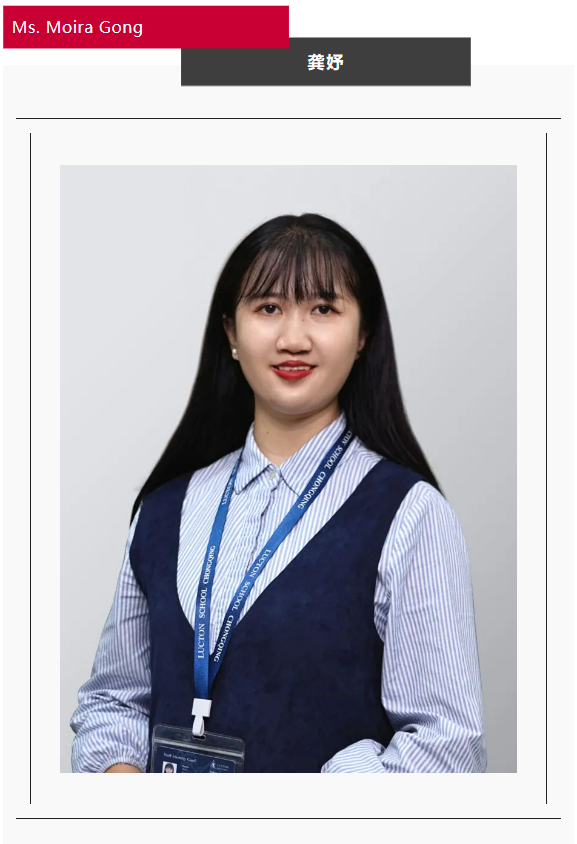
Moira, the boarding staff of the Boarding and Pastoral Care Department of Lucton School Chongqing, was the guest speaker of this salon. She has been engaged in work related to the mental health of middle school students and adolescent psychological counselling for many years. She has delivered more than 20 psychological lectures and has owned patent for mental health education teaching aids. In the salon, she shared new perspectives and methods of efficient parent-child communication from five aspects. Let us have a review!
First of all, it is the question that every parent is most concerned about - "What should I talk with my child? How should I say it?" Ms. Gong gave five suggestions:
1. Think from the child's point of view, and empathise with each other;
2. Listen carefully to the child's speech and try to enter his world;
3. Describe the facts: instead of criticising the child's behaviour, you can try explain the child's feelings at the moment based on your own experience, and help them express;
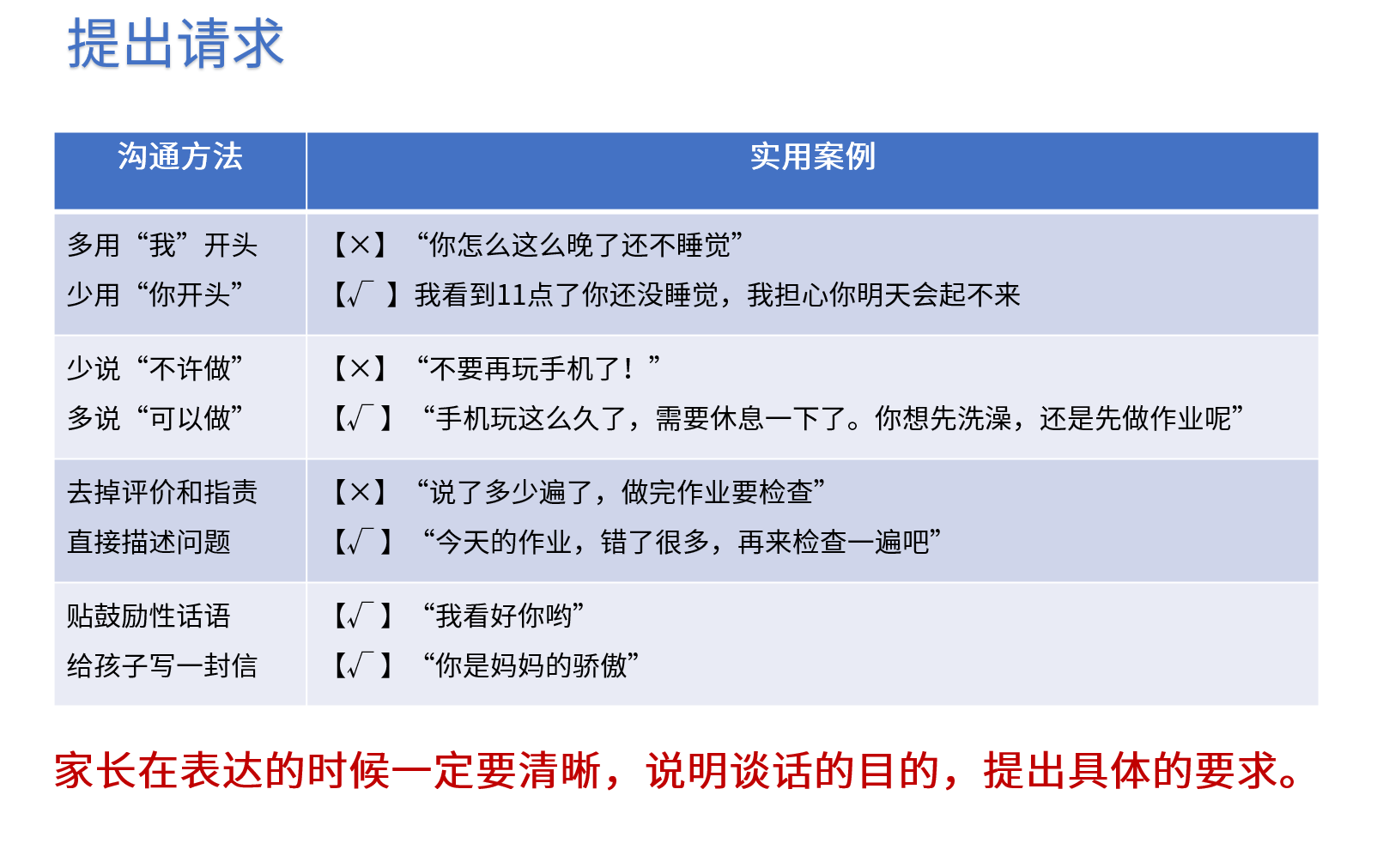
4. Express feelings: Use different sentences to help communicate with children;
"When" (stating something that triggers specific emotions or what the other person said or did)
"I feel..." (stating how we feel)
"Because..." (stating reasons)
5. Make a request: start the sentence with "I" instead of "you"; say "don't do" less and "can do" more; reduce evaluation and blame, directly describe the problem and say more encouraging words.
After the children have experienced online learning for more than three weeks, Ms. Gong shared three "little recipes" to stimulate children's self-consciousness in learning:
1. Build children's concentration: create a good home learning environment for children, supervise properly, guide children to combine work and rest, and focus on learning efficiency;
2. Solve children's "failure to learn": assist children to analyse the reasons, actively provide operational countermeasures, and create a relaxed and harmonious communication atmosphere;
3. Repair "broken windows, refuse to lay-back": let good habits replace bad habits; help children look directly at problems.
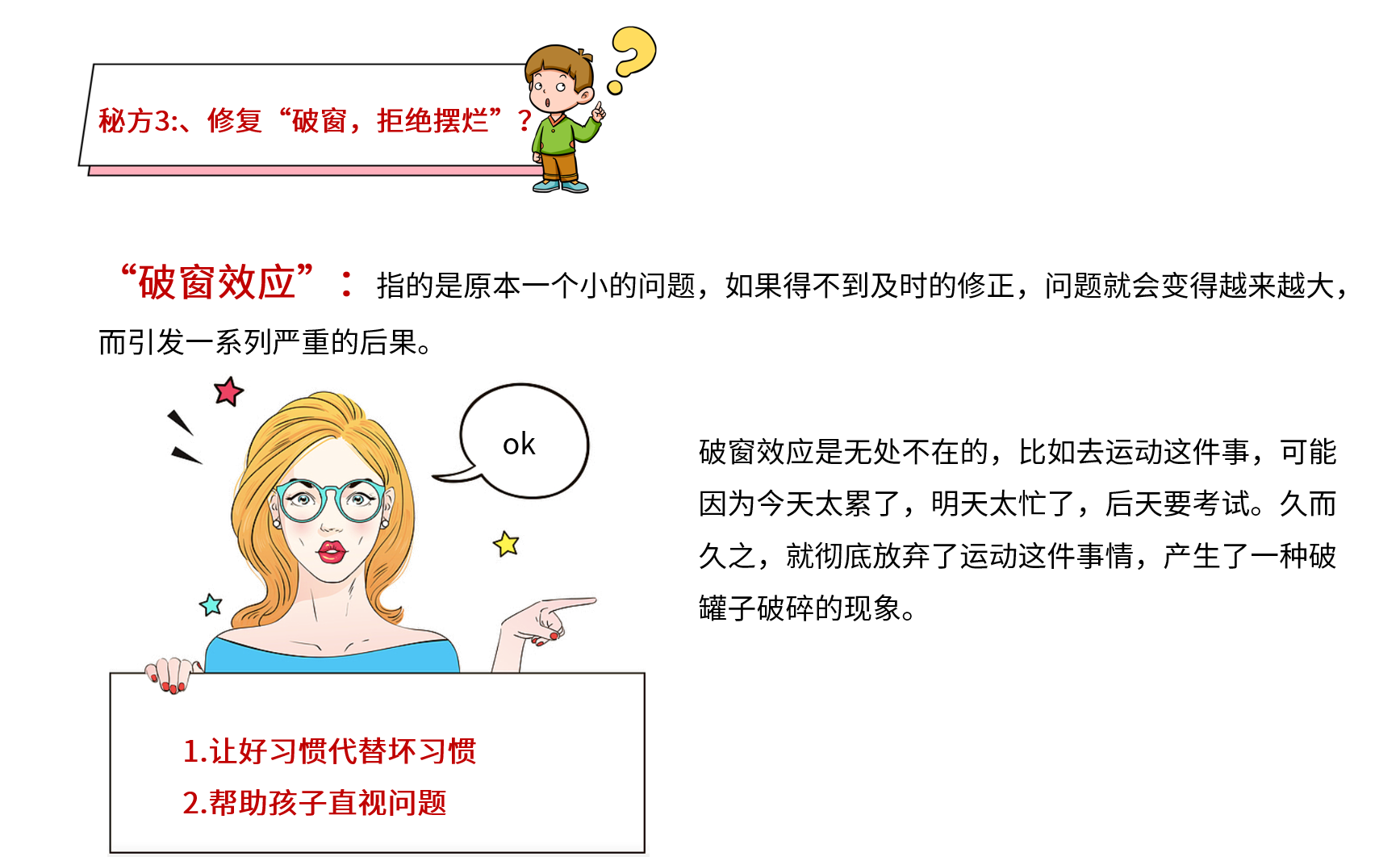
1. Lay a good relationship foundation, express your understanding to the child, solicit the child's opinion in a negotiable tone, and allow refusal;
2. The child counts the time and content of playing with the mobile phone by himself, and analyses how much of the wasted time is necessary;
3. The parent-child contract needs to be detailed and specific, so detailed that it can state that "parents cannot come to the child when the child is playing with the mobile phone" or "cannot knock on the child's door", "parents can remind the child 5 minutes before the appointed time, etc. ", and enhance the sense of trust between parents and children through their respective compliance with the contract;
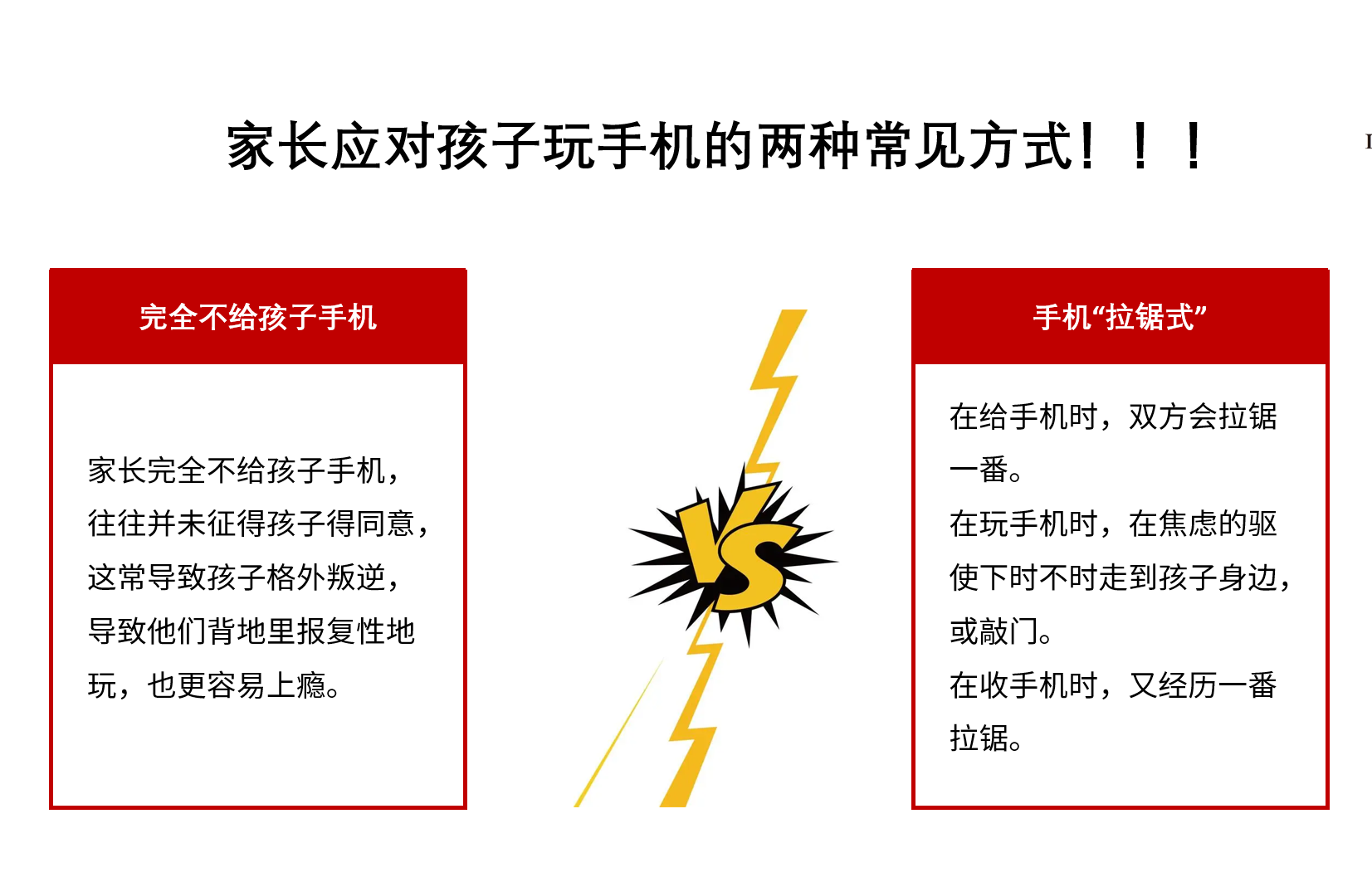
5. If the child delays when taking back the mobile phone, the parents must pay attention to their tone and attitude, and do not blame the child. The first three times can be used as a trial run, and the content of the contract can be revised or supplemented in time. After the duration of the fun phone and other conditions are finally determined, neither party will make any changes.
How to guide children to manage pocket money correctly? The following three suggestions are proposed:
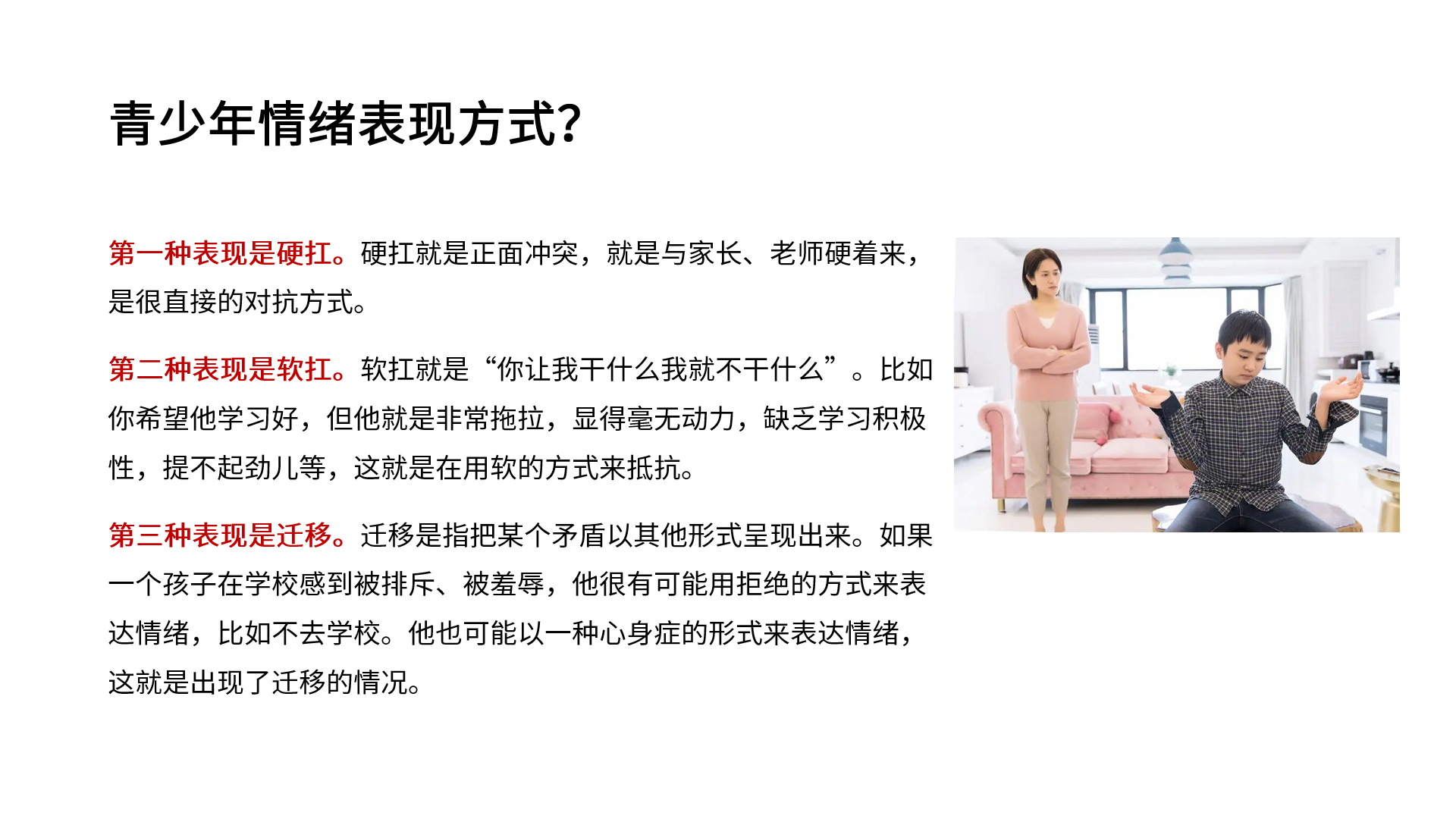
1. Recognise and manage emotions;
2. Express emotions and needs correctly;
3. Draw an emotional tree to effectively control emotions.
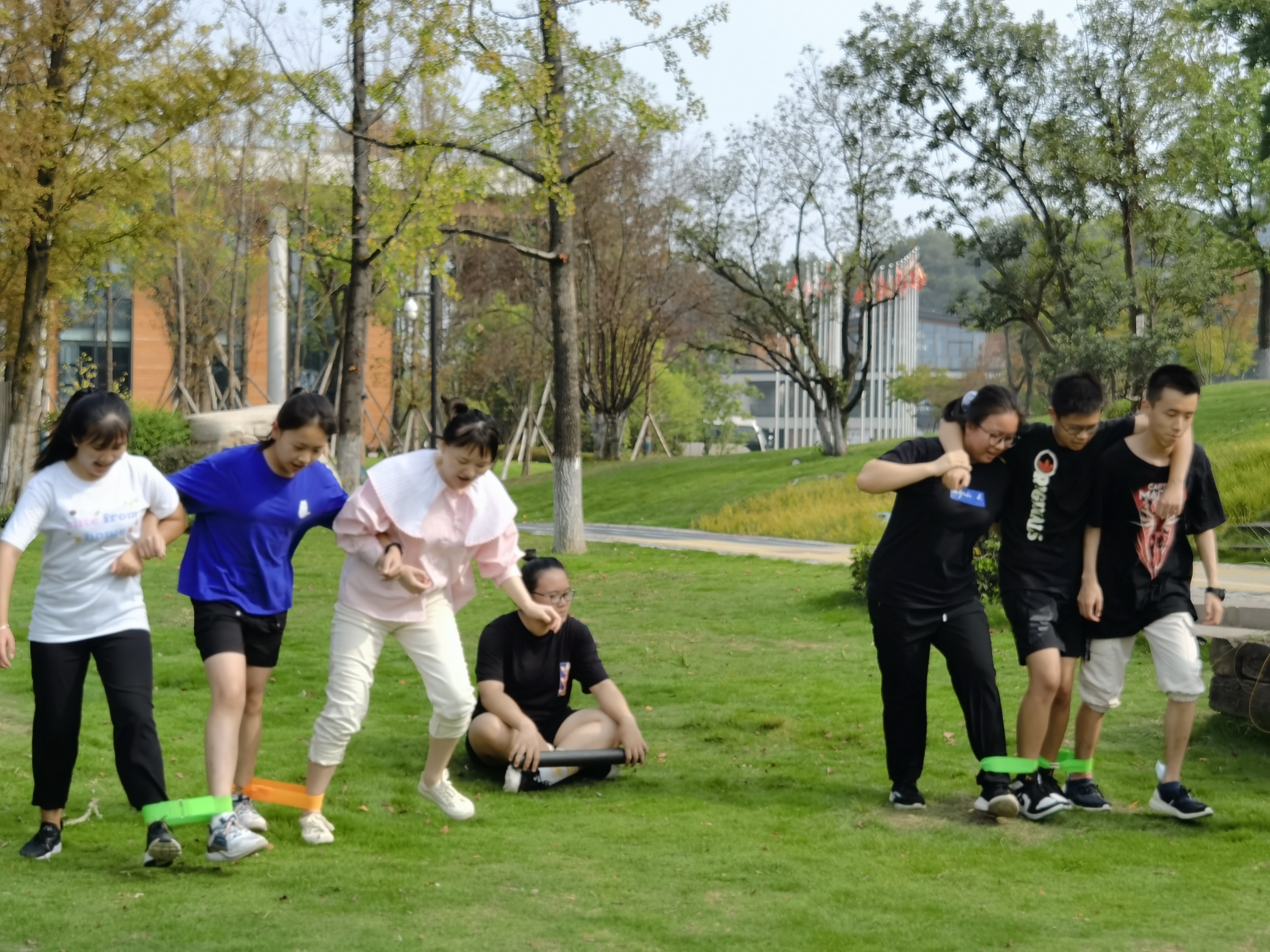
Finally, in the free questioning session, many parents raised questions such as: "how to motivate children's internal drive", "when will adolescence end when meet with menopause", "what should children do if they pursue perfection too much and thus, troubles caused?" Ms. Gong also patiently answered questions that resonated strongly with every parent, drawing a successful conclusion.

